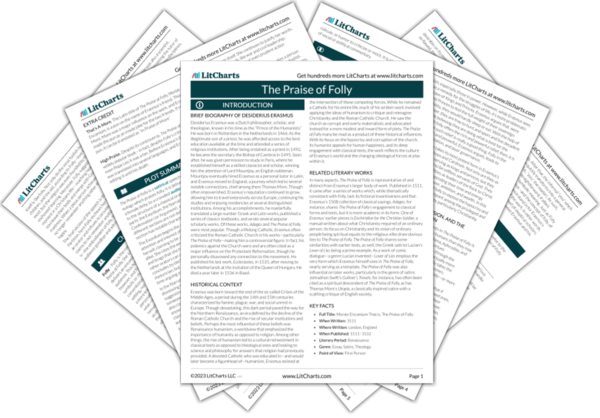In The Praise of Folly, Folly’s audience of scholars symbolizes the readership of the author, Erasmus. Folly’s audience is largely a metaphorical one, even within the fictional bounds of the book. They deliver no lines, contribute nothing to the plot, and are only ever explicitly addressed at the very start of Folly’s eulogy. After that, the informal “you” which Folly uses to address them quickly transforms into a general address to her readership (i.e., “you,” the reader). As such, Folly’s audience has a rather straightforward, if albeit metafictional (self-referential) symbolic meaning. Just as Folly stands in symbolically for Erasmus—and the concept of folly, of course—so too does Folly’s audience stand in for Erasmus’s readership. The fictional staging of the work, in other words, wherein Folly gives a eulogy to a crowd of skeptical scholars, directly maps to the relationship between Erasmus and his own, real audience.
Folly’s Audience Quotes in The Praise of Folly
However mortal folk may commonly speak of me (for I am not ignorant how ill the name of Folly sounds, even to the greatest fools), I am she – the only she, I may say–whose divine influence makes gods and men rejoice.
And now you shall hear from me an extemporaneous speech, unlabored, but so much truer for all that. I should not want you to think it is made to show off my wit, as is done by the common run of orators.












